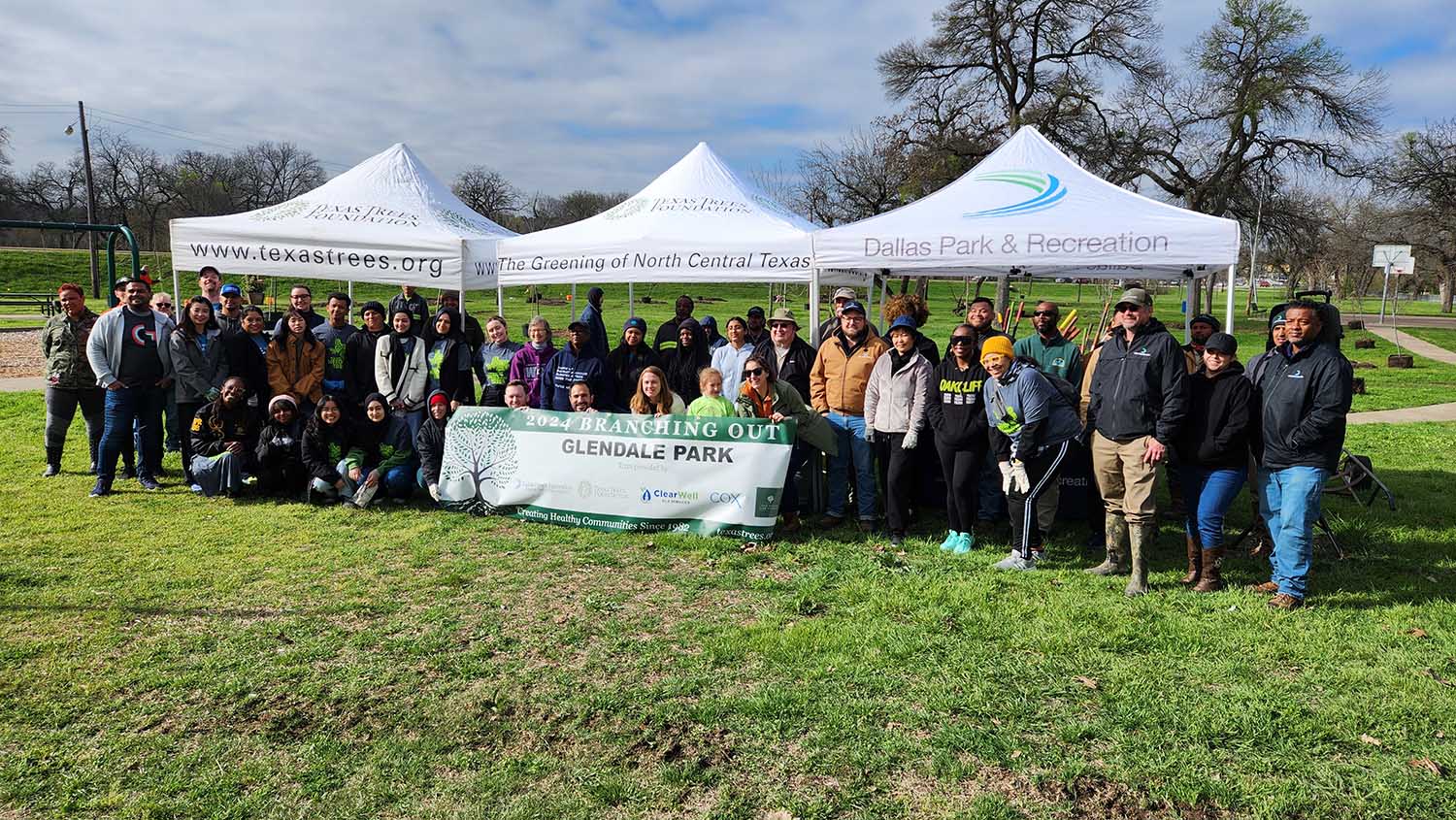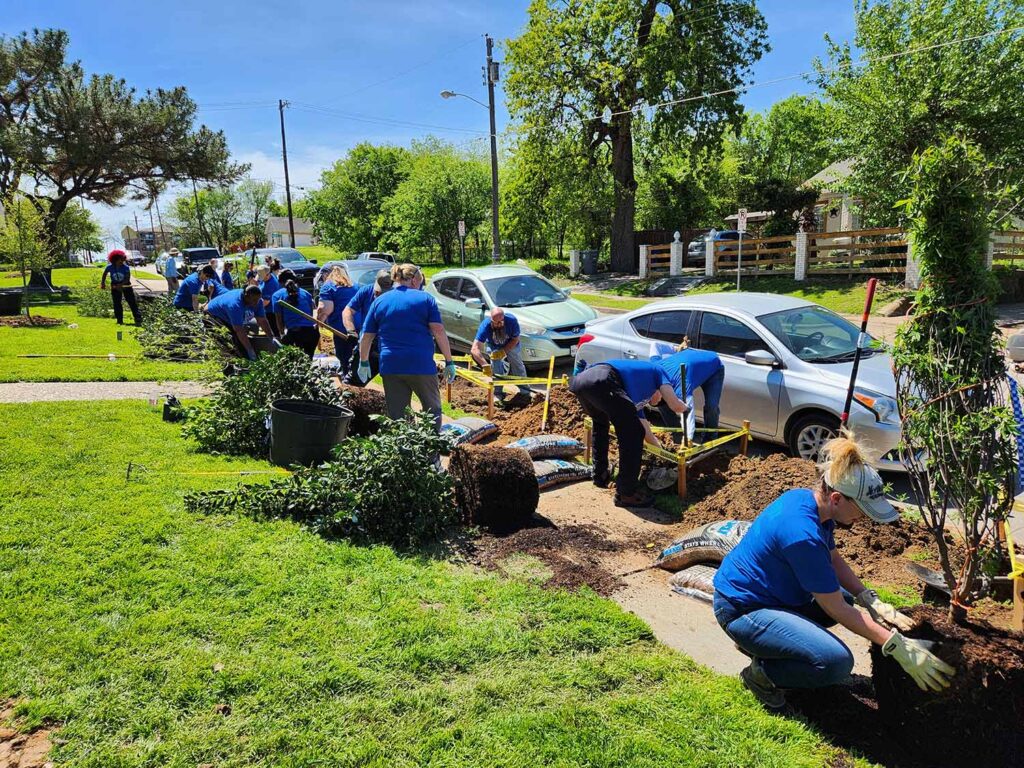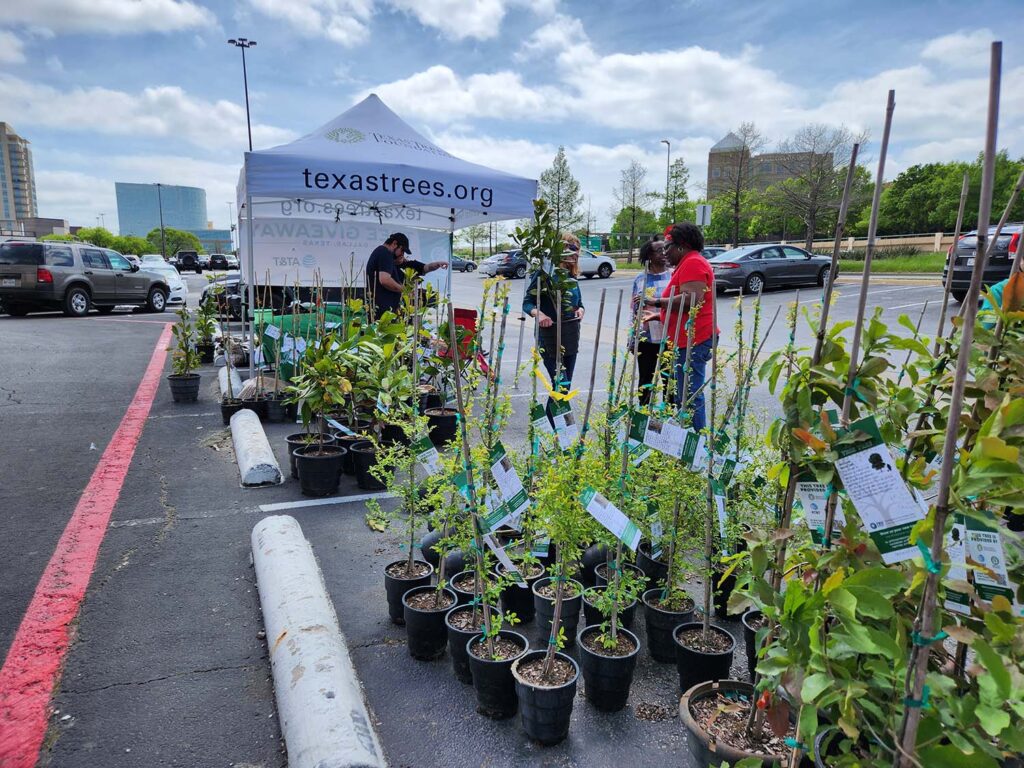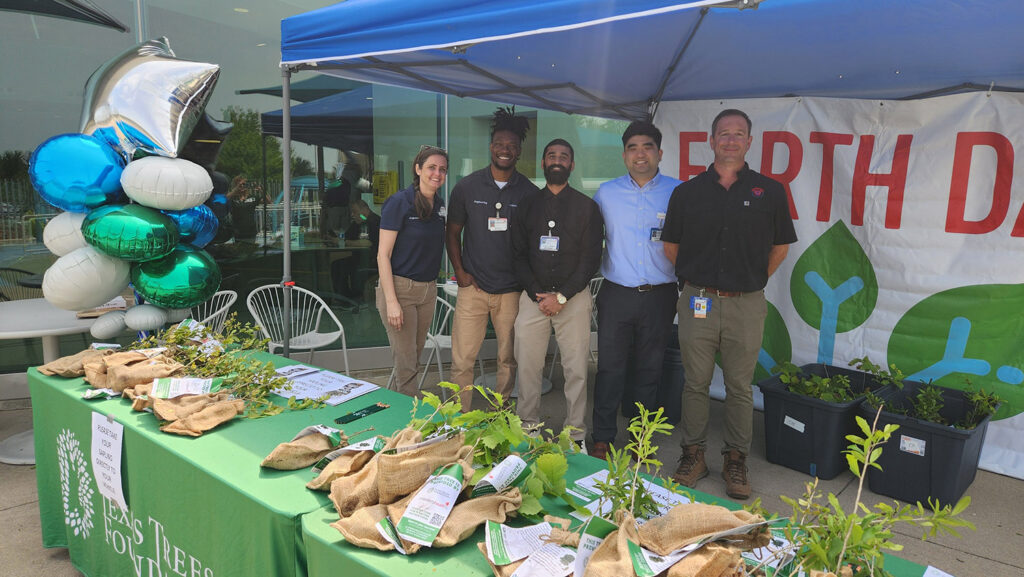Story by Lawson Martin. Photos provided by Texas Trees Foundation.
“We see that an urban forest thrives when it’s cared for and loved by its community,” says Elissa Izmailyan, the chief strategy and operation officer for Texas Trees Foundation. “Trees, in return, provide health benefits for people by giving them a better quality of life.”
Over the past 42 years, the Texas Trees Foundation has planted or given away more than 1.5 million trees. The nonprofit’s leaders are able to do so through a number of programs, including its Cool School program, which brings students and teachers closer to nature by planting trees and creating engaging outdoor learning areas. These spaces help children learn about and appreciate nature.
Research shows that spending time outdoors can increase children’s academic performance and health. According to the University of Illinois at Urbana-Champaign, kids who spend more time outside pay better attention in class. They also found that nature and trees reduce aggression and ADHD symptoms, helping students concentrate, complete tasks, and follow instructions better.
Students will conduct hands-on environmental activities through this program with a TEKS-aligned STEM-based curriculum.
The Cool School program is also significant because it addresses the lack of trees on school campuses, sometimes the city’s hottest and driest areas.
“All these school kids are going outside and spending time in the sun,” Elissa said.
Texas Trees Foundation aims to have 30% of school grounds covered by trees. However, the average school campus in the Dallas Metroplex has around 7% covered by trees. Through the Cool School program, the nonprofit wants to increase canopy coverage on school campuses to over 30 percent, providing students with more shaded and cooler outdoor areas.

Another way the Texas Trees Foundation ensures urban forestry thrives in North Texas is through its Green Jobs Work Force Program. This program meets the growing demand for a skilled workforce in urban forestry and arboriculture. The job training program targets young adults ages 18-24 and provides them with paid work experience designed to foster connections, career paths, and community.
“It’s a people-focused program,” Elissa said. “We’re looking for people who are seeking opportunities to work outdoors.”
The program’s participants receive classroom and hands-on experience in urban forestry, arboriculture, landscape design, and other green careers. Practical training includes tree planting, mulching, pruning, staking, watering, and weeding.
The Green Jobs Work Force Program aims to collaborate with local employers to ensure trainees acquire the necessary entry-level skills for employment and create a pipeline of young adults ready for a career in the green jobs sector.

The Branching Out program aims to reforest and beautify Dallas’ aging urban canopy. Texas Trees Foundation collaborates with the Texas Parks and Recreation Department, donors, and volunteers to strategically plant trees in our city to increase canopy coverage, provide shade, and offer health benefits.
By planting new trees in strategic locations, the program helps to lessen the Urban Heat Island effect, promoting a greener and healthier environment in North Texas.
“The Urban Heat Island effect means in the most concrete, most built-out portions of the city, it’s up to 19 degrees hotter than surrounding rural areas,” Elissa said. “Trees play a huge part in cooling our community. At the same time, the trees are also purifying our air and water, reducing asthma and cardiovascular disease rates.”

Texas Trees Foundation continues to ensure more trees are planted across North Texas, especially in areas that need them the most, by hosting tree giveaways. This past spring, the Foundation gave away free trees to North Texas residents living in select neighborhoods.
The NeighborWoods program provided the trees with mulching and planting instructions.
“Studies show that more trees in neighborhoods increase residential property value and enhance community pride,” said Rachel McGregor, Texas Trees Foundation Urban Forester. “The newly planted trees will help mitigate the urban heat island effect and improve the city’s infrastructure.”

Texas Trees Foundation completed its spring planting season and awaits its fall planting season, which will begin in September.
“Trees are a bit like people in North Texas,” Elissa joked. “It’s really lovely to be outside in the fall and spring. It’s a bit tougher in the summer and the dead of winter, so our planting seasons tend to fall in the ‘lovely to be outside’ times of fall and spring because that’s when the trees also acclimate best.”
The nonprofit anticipates having 15 to 20 plantings starting in September, and volunteers are always welcome to get involved in the tree plantings and giveaways.
Elissa encourages anyone wanting to get involved with Texas Trees Foundation to follow the nonprofit on social media, check out its website, and sign up for its newsletter.
“Or if you are in a community that needs more trees, let your park board representative or city councilmen know, and we’d be happy to partner with you and bring volunteer planting to your area,” Elissa said.
Sign up with your email address to receive good stories, events, and volunteer opportunities in your inbox.
Notifications